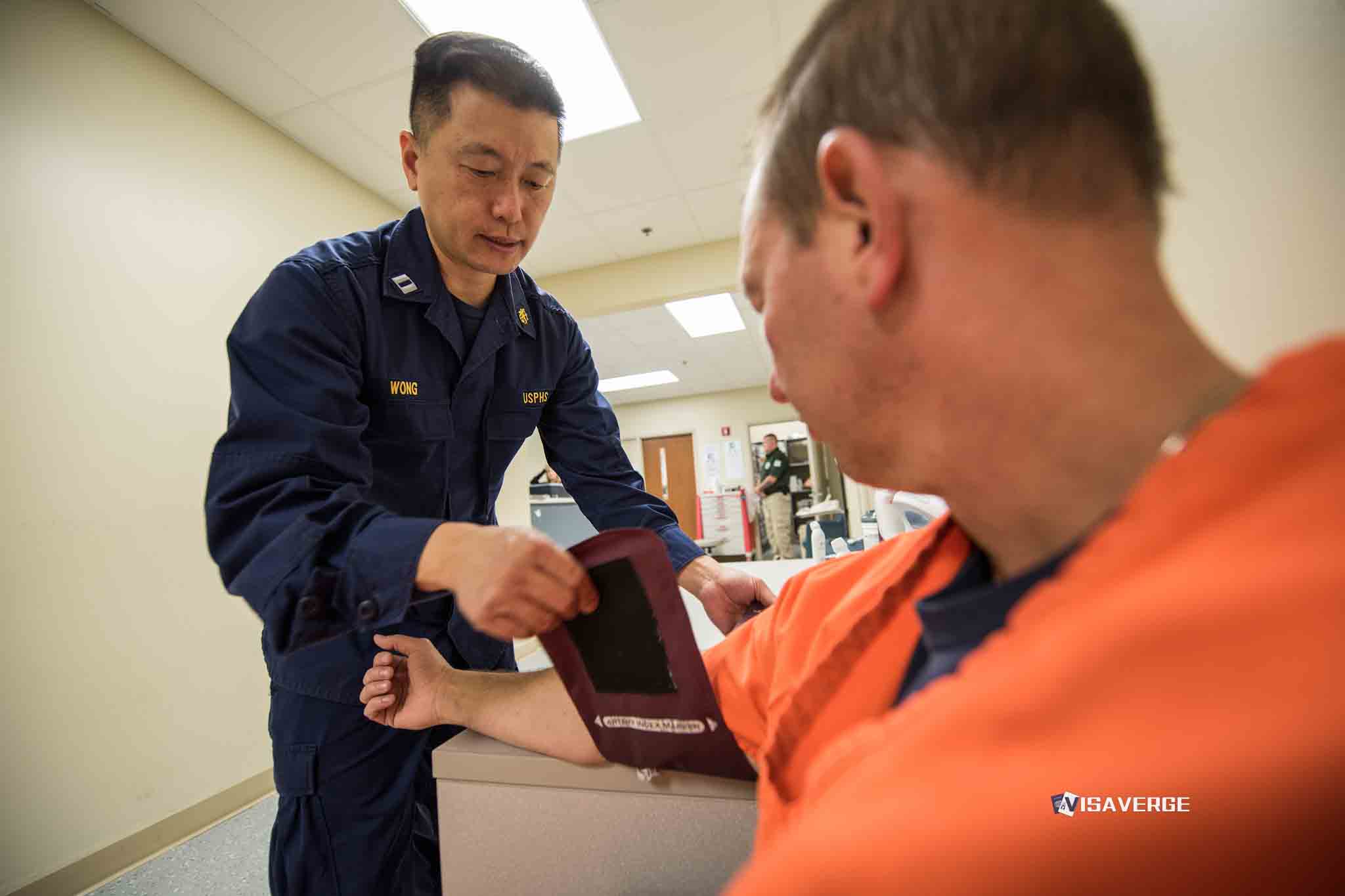Key Takeaways
• Massachusetts allocates $430.9M in FY25 for refugee emergency shelter, housing, and support programs.
• Refugees and asylees qualify with proof of status and recent arrival, accessing housing, legal, and job services.
• $5M Immigrant Legal Defense Fund in FY26 provides free legal help for immigration cases at risk of deportation.
If you are a refugee or asylum seeker hoping to settle in Massachusetts, you may wonder what state-level support is available, whether you qualify, and how to access these resources. Massachusetts has built a strong system to help refugees and asylum seekers, using state funding, partnerships with local agencies, and coordination with federal programs. This guide explains who qualifies for these supports, what is offered, who is not eligible, and what steps you can take if you do not meet the requirements right now.
Eligibility: Do You Qualify for Refugee and Asylum Seeker Support in Massachusetts?

To receive most state-level support in Massachusetts, you must fit into one of these categories:
- Refugee: You have been granted refugee status by the United States 🇺🇸 government, usually after fleeing your home country due to war, violence, or persecution.
- Asylee: You have applied for asylum in the United States 🇺🇸 and have been granted asylum status.
- Certain Humanitarian Statuses: In some cases, people with Temporary Protected Status (TPS), Special Immigrant Visas (SIV), or similar humanitarian designations may also qualify for some services.
You generally qualify if:
– You have proof of your refugee or asylee status (such as an approval letter or I-94 form with the correct status).
– You have arrived in Massachusetts within the last few years (most programs focus on new arrivals, but some support is ongoing).
– You are willing to work with a resettlement agency or the Massachusetts Office for Refugees and Immigrants (ORI).
You do not qualify if:
– You are in the United States 🇺🇸 on a tourist, student, or work visa.
– You are undocumented and have not applied for asylum or another protected status.
– You are a lawful permanent resident (green card holder) who did not arrive as a refugee or asylee (though some programs, like citizenship help, may still be open to you).
Key Requirements and Examples
Let’s look at the main types of support, who qualifies, and what you need to show:
1. Shelter and Housing Support
What is offered?
– Emergency shelter for new arrivals and those facing homelessness.
– HomeBASE program: helps pay for housing costs, like rent or moving expenses.
– Temporary Respite Centers: short-term safe places for those in crisis.
Who qualifies?
– Refugees and asylees who have just arrived or are facing a housing emergency.
– Families with children, single adults, and elderly refugees may all be eligible.
What do you need?
– Proof of status (refugee/asylee approval, I-94, or similar).
– Proof of need (for example, eviction notice, lack of housing, or unsafe living conditions).
Example:
A family from Afghanistan arrives in Massachusetts as refugees. They have nowhere to stay. The local resettlement agency helps them find emergency shelter and enrolls them in HomeBASE to help pay for an apartment.
Disqualifying factors:
– Already have stable housing.
– Not a refugee, asylee, or eligible humanitarian status.
2. Basic Needs and Orientation
What is offered?
– Help with food, clothing, and basic household items.
– Transportation to job interviews, medical appointments, or school.
– Community orientation: help with Social Security applications, school enrollment, and learning how to use public transportation.
Who qualifies?
– New refugees and asylees, usually within the first 30-90 days of arrival.
What do you need?
– Proof of arrival date and status.
– Willingness to participate in orientation activities.
Example:
A single mother from Sudan arrives with her two children. The resettlement agency helps her get food, clothing, and rides to register her children for school.
Disqualifying factors:
– Arrived more than a year ago and already settled.
– Not a refugee or asylee.
3. Legal Defense and Advocacy
What is offered?
– Free or low-cost legal help for immigration cases, including defense against deportation.
– Help with asylum applications, green card applications, and family reunification.
Who qualifies?
– Refugees, asylees, and other immigrants facing legal challenges, especially those at risk of detention or deportation.
What do you need?
– Proof of status or pending immigration case.
– Referral from a resettlement agency or community group.
Example:
An asylum seeker from Haiti is facing a court hearing. Thanks to the new $5 million Immigrant Legal Defense Fund, she gets a lawyer to help her stay in the United States 🇺🇸.
Disqualifying factors:
– Not facing an immigration legal issue.
– Already have private legal representation.
4. Cash Assistance
What is offered?
– Refugee Cash Assistance (RCA): monthly payments for up to 8 months for refugees and asylees without dependent children.
Who qualifies?
– Refugees and asylees who do not qualify for other federal cash programs (like TANF).
– Must be actively looking for work and participating in employment services.
What do you need?
– Proof of status.
– Proof of income and assets (must be low-income).
– Willingness to participate in job search and training programs.
Example:
A young man from Syria arrives alone. He gets RCA while he looks for a job and attends job readiness classes.
Disqualifying factors:
– Already receiving other cash assistance (like TANF).
– Not actively seeking work.
5. Employment and Training
What is offered?
– Job readiness classes, resume help, and interview practice.
– Vocational training for specific careers.
– Job placement and follow-up support.
– English as a Second Language (ESL) classes.
Who qualifies?
– Refugees and asylees, especially those who are new arrivals or unemployed.
What do you need?
– Proof of status.
– Willingness to participate in training and job search.
Example:
A refugee from Ukraine attends ESL and job training classes, then gets help finding a job at a local hospital.
Disqualifying factors:
– Already employed full-time.
– Not interested in working or training.
6. Health and Elder Services
What is offered?
– Health screenings and help finding a doctor.
– Preventive health education.
– Special programs for refugees aged 60 and older, including social activities and help with daily needs.
Who qualifies?
– Refugees and asylees, especially those with health needs or who are elderly.
What do you need?
– Proof of status.
– For elder services, proof of age (60+).
Example:
An elderly couple from Somalia gets help signing up for health insurance and joins a senior group for refugees.
Disqualifying factors:
– Not a refugee or asylee.
– Under age 60 for elder-specific programs.
7. Citizenship and Financial Literacy
What is offered?
– Help preparing for the U.S. citizenship test and interview.
– Financial education classes to learn about banking, credit, and budgeting.
Who qualifies?
– Legal permanent residents (green card holders) who arrived as refugees or asylees.
– Refugees and asylees interested in becoming U.S. citizens.
What do you need?
– Proof of legal permanent resident status.
– Willingness to attend classes and workshops.
Example:
A former refugee from Iraq, now a green card holder, attends citizenship classes and passes the test to become a U.S. citizen.
Disqualifying factors:
– Not a legal permanent resident.
– Not interested in citizenship or financial education.
Alternative Options if You Are Not Eligible
If you do not qualify for these state-funded refugee supports in Massachusetts, you still have some options:
- Community-Based Help: Many local churches, mosques, and nonprofits offer food, clothing, and basic support to all immigrants, regardless of status.
- Legal Aid: Some legal aid groups help undocumented immigrants or those with other statuses. You can find a list of legal aid providers on the Massachusetts Legal Services website.
- Federal Programs: If you are not a refugee or asylee but have another protected status (like TPS or SIV), check with the Massachusetts Office for Refugees and Immigrants (ORI) to see if you qualify for any programs.
- Public Benefits: Some public benefits, like emergency medical care or public schooling for children, are available to all Massachusetts residents, regardless of immigration status.
How to Improve Your Chances of Qualifying
If you do not qualify now but hope to in the future, here are some steps you can take:
- Apply for Asylum or Protected Status: If you fear returning to your home country, consider applying for asylum or another protected status. You can find information and forms on the USCIS website (Form I-589 for asylum).
- Work with a Resettlement Agency: Even if you are not sure about your status, contact a local resettlement agency. They can help you understand your options and may connect you with other resources.
- Keep Your Documents Updated: Make sure you have copies of all immigration documents, including your I-94, approval letters, and any notices from USCIS.
- Stay Informed: Rules and funding can change. Check the Massachusetts Office for Refugees and Immigrants for the latest updates.
Key Resettlement Agencies in Massachusetts
Several agencies work closely with the state to help refugees and asylum seekers:
- Ascentria Care Alliance: Offers services in Central and Western Massachusetts, including help with jobs, housing, and community connections.
- Jewish Family Service of Metrowest: Provides free help with employment, English classes, medical and cash assistance, and resettlement planning.
- International Institute of New England: Supports refugees and immigrants with legal, employment, and social services.
- Church World Service: Works with local partners to provide resettlement and support.
How to Apply for State-Level Support
- Contact a Resettlement Agency: As soon as you arrive or need help, reach out to one of the agencies listed above or the Massachusetts Office for Refugees and Immigrants (ORI).
- Provide Proof of Status: Bring your immigration documents, proof of arrival, and any other paperwork you have.
- Complete Intake and Orientation: You will go through an intake process to assess your needs and get connected to the right programs.
- Follow Up: Stay in touch with your caseworker and attend all required classes or appointments.
Recent Developments in Massachusetts Refugee Support
Massachusetts has increased its support for refugees and asylum seekers in 2025 and 2026:
- $430.9 million in FY25 for emergency assistance, shelter, housing, and new arrival supports.
- $5 million in FY26 for the Immigrant Legal Defense Fund, making legal help more available.
- Ongoing efforts to improve services for elderly refugees, health care, and financial education.
- Strong partnerships between the state, local agencies, and federal programs to keep services running even when federal funding is delayed.
As reported by VisaVerge.com, these investments show Massachusetts’ commitment to helping refugees and asylum seekers build new lives, even as federal support sometimes falls short.
Official Resources
For the most up-to-date information and to apply for services, visit the Massachusetts Office for Refugees and Immigrants.
Summary Table: Massachusetts State-Level Refugee Supports (2025)
| Support Type | Description | Key Agencies/Programs | Funding (FY25/FY26) |
|---|---|---|---|
| Shelter & Housing | Emergency shelter, HomeBASE housing support, Temporary Respite Centers | State-funded programs, resettlement agencies | $326.1M shelter, $56.2M HomeBASE |
| Basic Needs & Orientation | Housing, furnishings, food, clothing, transportation, community orientation | Resettlement agencies, ORI | Included in $2.5M new arrival supports |
| Legal Defense | Legal representation for immigration proceedings | Immigrant Legal Defense Fund, resettlement agencies | $5M FY26 new fund |
| Cash Assistance | Monthly grants for eligible refugees without dependent children | Refugee Cash Assistance (RCA) via ORI | State-funded |
| Employment & Training | Job readiness, vocational training, job placement, ESL | Refugee Employment Services (RES) | State-funded |
| Health & Elder Services | Health promotion, elder refugee services | Refugee Health Promotion Program, PEERS | State-funded |
| Citizenship & Financial Literacy | Citizenship preparation, financial education | CNAP, FLNP | State-funded |
Takeaways and Next Steps
- If you are a refugee or asylee in Massachusetts, you likely qualify for a wide range of state-funded supports.
- Contact a resettlement agency or the Massachusetts Office for Refugees and Immigrants as soon as possible to start the process.
- Keep your documents safe and up to date, and participate in orientation and employment programs to get the most help.
- If you do not qualify now, look for community-based help and consider applying for protected status.
- Stay informed about new funding and programs, as Massachusetts continues to expand its support for refugees and asylum seekers.
By understanding the eligibility rules, requirements, and available resources, you can take the right steps to get the help you need in Massachusetts. The state’s strong network of agencies and state funding makes it one of the best places in the United States 🇺🇸 for refugees to start a new chapter.
Learn Today
Refugee → A person forced to flee their country due to war, violence, or persecution with US recognition.
Asylee → An individual granted asylum status in the US after applying for protection against persecution.
HomeBASE → A Massachusetts housing program that helps pay rent or moving expenses for eligible refugees.
Refugee Cash Assistance (RCA) → Monthly financial aid for refugees and asylees without dependent children actively seeking employment.
Immigrant Legal Defense Fund → A Massachusetts fund providing free or low-cost legal help to immigrants facing deportation.
This Article in a Nutshell
Massachusetts offers extensive state support for refugees and asylum seekers, providing shelter, cash aid, legal defense, and job training services to qualified individuals arriving recently with proper status documentation and commitment to integration.
— By VisaVerge.com








